 Youth
Youth
Many of today’s youth, at 1.8 billion worldwide, live in areas affected by conflict. The predominant narrative depicts young men as perpetrators of violence and young women as victims. The U.S. Institute of Peace sees youth as agents for positive change and works to equip young peacebuilders with the knowledge and skills they need to bring divided communities together and to manage conflict nonviolently. USIP also helps its youth partners conduct and publish research in their communities, enabling them to develop local solutions to problems and allowing them to be active contributors to the field of peacebuilding.
Featured Publications
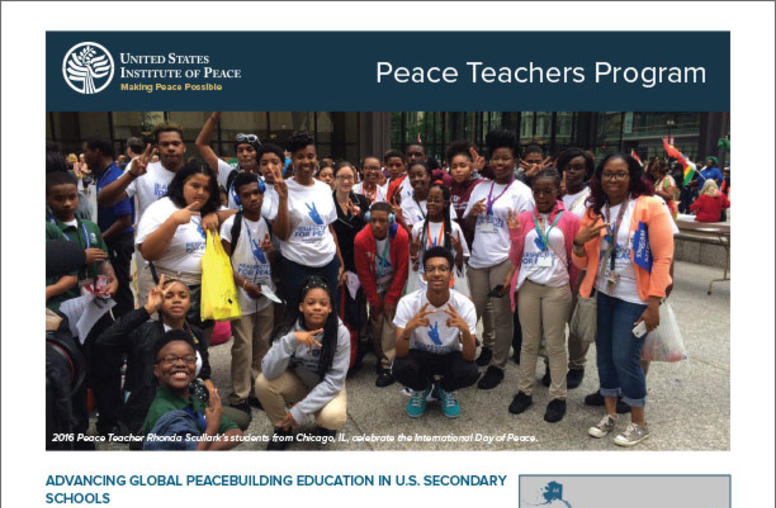
Peace Teachers Program
The U.S. Institute of Peace’s (USIP) Peace Teachers Program is rooted in the conviction that educators can be pivotal in bringing themes of global conflict and peace into their classrooms, schools, and communities.
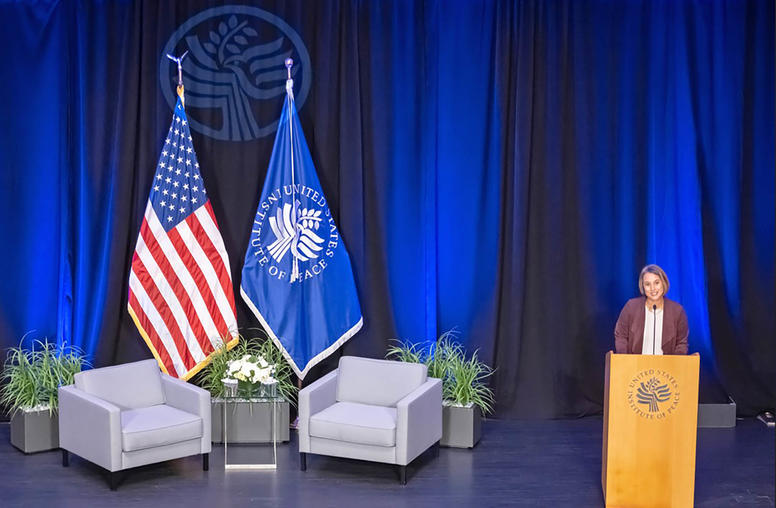
Teaching Peace: Nelson Mandela’s Story in a World of Conflicts
A world reeling from the brutal horrors of our current wars will next week mark (or perhaps overlook) the 10th anniversary of the death of a peacemaking icon: South Africa’s liberation leader and former president, Nelson Mandela. Amid continued or escalated wars — Israel-Gaza, Ukraine-Russia, Sudan, Yemen, Afghanistan and others — USIP this month hosted Georgia’s senator, the Reverend Raphael Warnock, in a discussion of Mandela’s legacy and immediate relevance. Another Georgian, Decatur High School history teacher Kristen Embry, introduced Warnock. She spoke about Mandela and her own mission of teaching history and peacebuilding to American students in the 2020s.
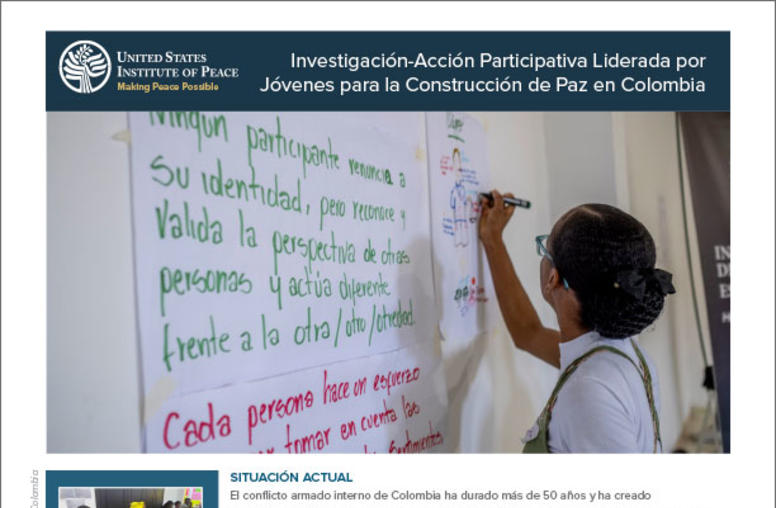
Investigación-Acción Participativa Liderada por Jóvenes para la Construcción de Paz en Colombia
El conflicto armado interno de Colombia ha durado más de 50 años y ha creado desigualdades y violencia en todo el país. El conflicto ha dejado más de 260,000 muertos y ha afectado a más de 8 millones de víctimas. Las y los jóvenes han sido una de las poblaciones más afectadas del conflicto.
Current Projects
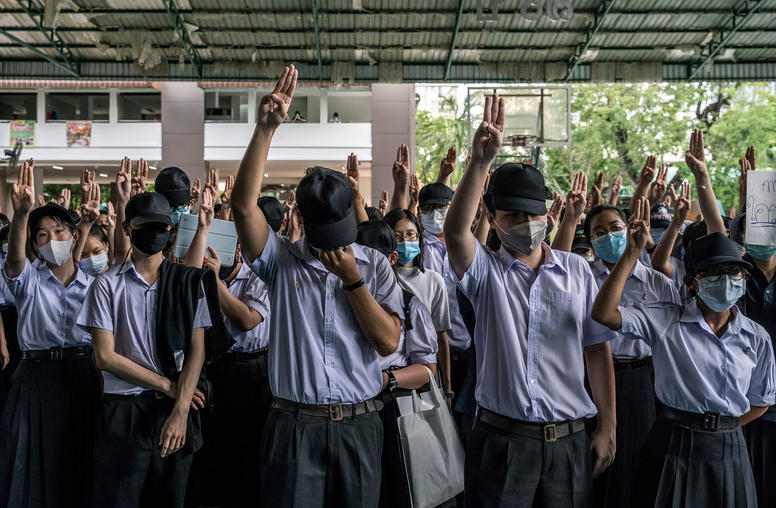
Youth and LGBTQ+ in Nonviolent Action: The WiRe+ Data Set
Over the past two years, and in collaboration with Dr. Erica Chenoweth and Dr. Zoe Marks of Harvard University, USIP has been collecting cross-national data on the frequency and extent of youth and LGBTQ+ frontline participation in major nonviolent action campaigns from 1990-2020. The resulting data set helps to illuminate both the causes and the consequences of youth and LGBTQ+ participation in social movements — with implications for activists, policymakers and academics looking to better support nonviolent action campaigns.
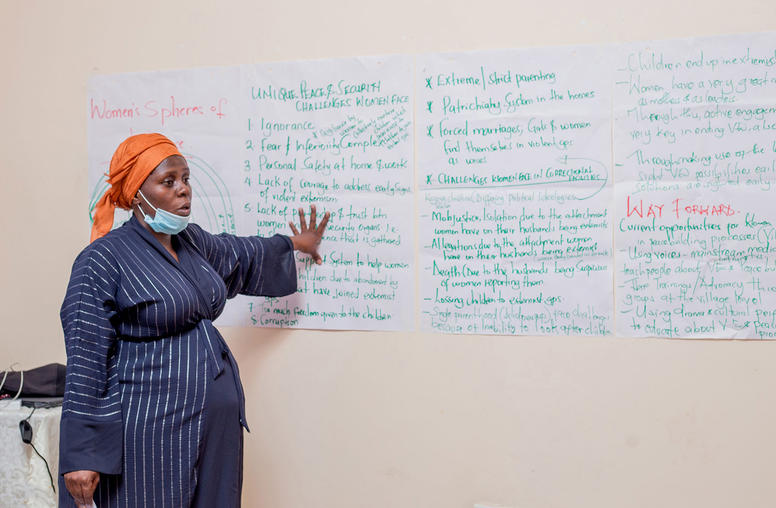
The USIP Learning Agenda
In support of the Evidence Act and as part of the U.S. national security architecture, USIP is carrying out its own learning agenda. Peacebuilding has long been viewed as too messy and complex for evidence-based approaches — but USIP’s mix of research and practice belies that assumption.
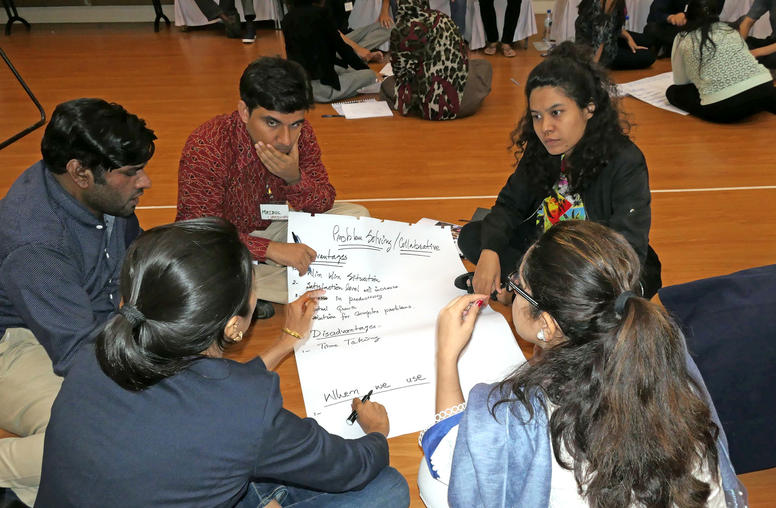
Youth Country Liaison Initiative
USIP created the Youth Country Liaison initiative to improve linkages between USIP country teams and USIP Generation Change fellows. As part of the initiative, the liaisons provide consultation within USIP and provide a youth-focused lens for USIP regional teams as they design and implement programs and activities. The Youth Country Liaison is a volunteer position for a duration of one year.